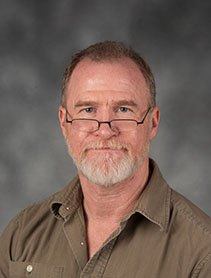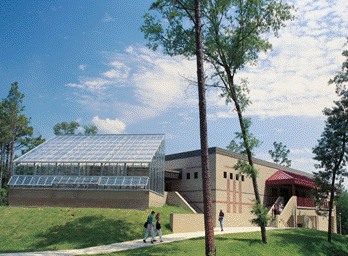
Dr. Philip Darby
- Position: Professor Emeritus
- Department: Biology
- Office Location: Building 58, Room 62H
- pdarby@uwf.edu
- Campus: 850.474.2647
Biography
Dr. Phil Darby earned a Ph.D. in Wildlife Ecology from the University of Florida. His research focuses on the population ecology and life history of wetland-dependent fauna. Current projects study the effects of hydrology and habitat structure on apple snails, which inhabit aquatic habitats throughout Florida.
Darby’s research team also publishes research on the endangered snail kite and other predators of apple snails. Government agency scientists and managers use a population model developed by Darby and colleagues, EverSnail, to evaluate the impacts of alternative water management scenarios related to Everglades restoration. Publications include Landscape Ecology, Condor, Malacologia, Aquatic Ecology, Waterbirds, and Wetlands.
Darby, a Professor, has made over 60 presentations about kites, snails and wetlands to various groups in Florida, at national science meetings, other universities, and to a science workshop in Argentina. Darby has developed collaborations in the Pensacola region to study wetland-dependent bird ecology, including marsh birds and wintering waterfowl. Among courses taught: Ecology, Ecology Lab, Avian Science, Wetlands Ecology, Quantitative Ecology, Animal Behavior. Darby has a M.S. in Ecotoxicology from Duke and two B.S. degrees from Virginia Tech – Wildlife Ecology and Biochemistry.
Degrees & Institutions
Ph.D. Wildlife Ecology, University of Florida
M.S. Ecotoxicology, Duke
B.S. Virginia Tech, Wildlife Ecology and Biochemistry
Research
His research focuses on the population ecology and life history of wetland-dependent fauna. Current projects study the effects of hydrology and habitat structure on apple snails, which inhabit aquatic habitats throughout Florida. Darby’s research team also publishes research on the endangered snail kite and other predators of apple snails.
Classes Taught
- Wetlands Ecology
- Quantitative Ecology
- Animal Behavior
- General Biology for Non-Majors
Publications
Darby, P.C., I. Fujisaki, and D.J. Mellow. 2012. The effects of prey density on capture times and foraging bout success of course-hunting adult snail kites. The Condor. 114:755-763.
Valentine-Darby, P., P.C. Darby, and H.F. Percival. 2011. Gender-based differences in Florida apple snail (Pomacea paludosa) movements. Malacologia 54:109-118.
Darby, P.C., Bennetts, R.E. and H.F. Percival. 2008. Dry down impacts on apple snail demography: implications for wetlands water management. Wetlands 28:204-214.
Glass, N. H. and P.C. Darby. 2009. The effect of calcium and pH on Florida apple snail, Pomacea paludosa (Gastropoda: Ampullariidae), shell growth and crush weight. Aquatic Ecology 43: 1085-1093.
Keywords: apple snail, snail kite, wetlands, hydrology, water management, Everglades, population ecology, Florida wetlands wildlife



